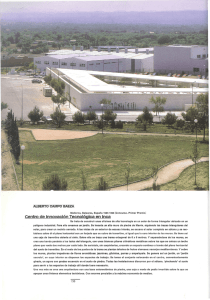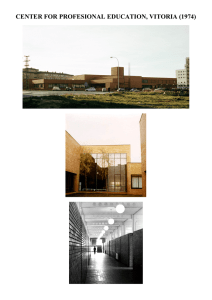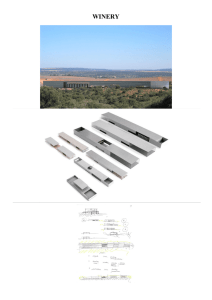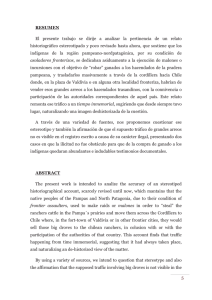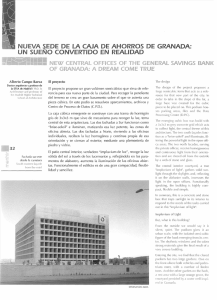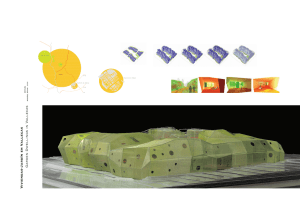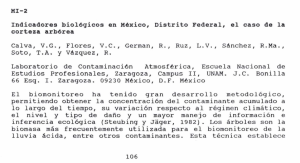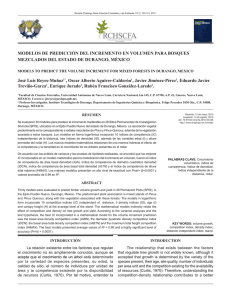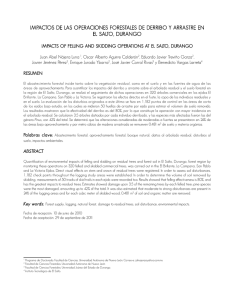AV75 76 opt
Anuncio
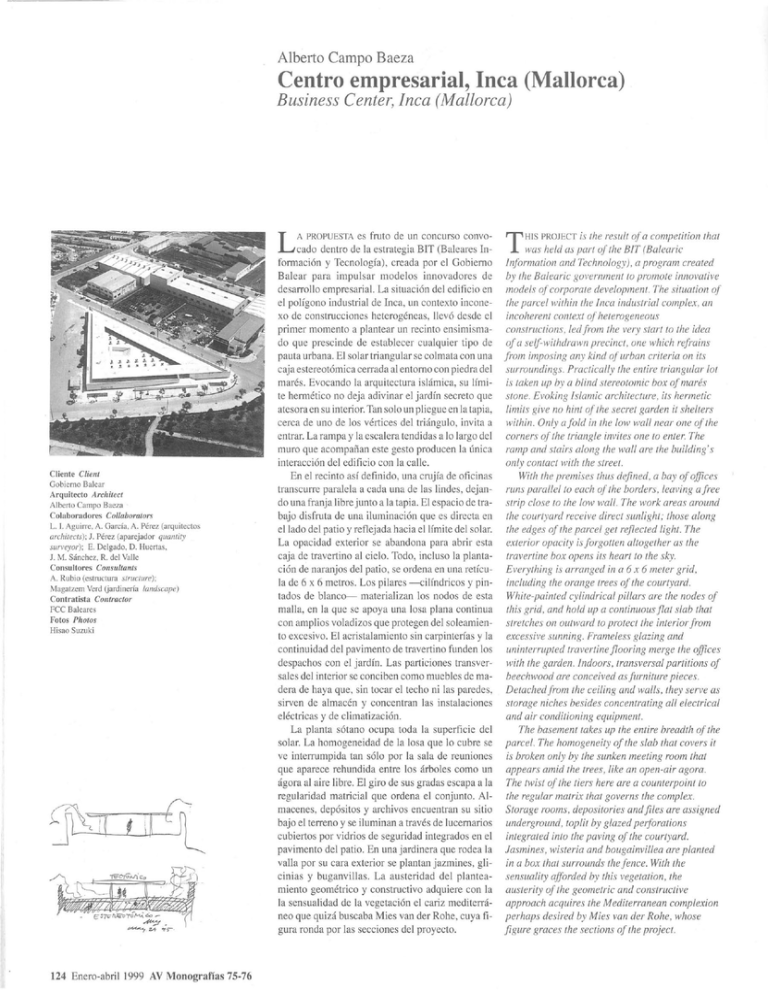
Alberto Campo Baeza Centro empresarial, Inca (Mallorca) Business Center, Inca (Mallorca) A PROPUESTA es fruto de un concurso convocado dentro de la estrategia BIT (Baleares Información y Tecnología), creada por el Gobierno Balear para impulsar modelos innovadores de desarrollo empresarial. La situación del edificio en el polígono industrial de Inca, un contexto inconexo de construcciones heterogéneas, llevó desde el primer momento a plantear un recinto ensimismado que prescinde de establecer cualquier tipo de pauta urbana. El solar triangular se colmata con una caja estereotómica cerrada al entorno con piedra del marés. Evocando la arquitectura islámica, su límite hermético no deja adivinar el jardín secreto que atesora en su interior. Tan solo un pliegue en la tapia, cerca de uno de los vértices del triángulo, invita a entrar. La rampa y la escalera tendidas a lo largo del muro que acompañan este gesto producen la única interacción del edificio con la calle. En el recinto así definido, una crujía de oficinas transcurre paralela a cada una de las lindes, dejando una franja libre junto a la tapia. El espacio de trabajo disfruta de una iluminación que es directa en el lado del patio y reflejada hacia el límite del solar. La opacidad exterior se abandona para abrir esta caja de travertino al cielo. Todo, incluso la plantación de naranjos del patio, se ordena en una retícula de 6 x 6 metros. Los pilares -cilíndricos y pintados de blanco- materializan los nodos de esta malla, en la que se apoya una losa plana continua con amplios voladizos que protegen del soleamiento excesivo. El acristalamiento sin carpinterías y la continuidad del pavimento de travertino funden los despachos con el jardín. Las particiones transversales del interior se conciben como muebles de madera de haya que, sin tocar el techo ni las paredes, sirven de almacén y concentran las instalaciones eléctricas y de climatización. La planta sótano ocupa toda la superficie del solar. La homogeneidad de la losa que lo cubre se ve interrumpida tan sólo por la sala de reuniones que aparece rehundida entre los árboles como un ágora al aire libre. El giro de sus gradas escapa a la regularidad matricial que ordena el conjunto. Almacenes, depósitos y archivos encuentran su sitio bajo el terreno y se iluminan a través de lucernarios cubiertos por vidrios de seguridad integrados en el pavimento del patio. En una jardinera que rodea la valla por su cara exterior se plantan jazmines, glicinias y buganvillas. La austeridad del planteamiento geométrico y constructivo adquiere con la la sensualidad de la vegetación el cariz mediterráneo que quizá buscaba Mies van der Rohe, cuya fi gura ronda por las secciones del proyecto. L Cliente Client Gobierno Balear Arquitecto Architect Alberto Campo Baeza Colaboradores Collaborators L. l. Agui1Te, A. García, A. Pérez (arquitectos architects); J. Pérez (aparejador quantity surveyor); E. Delgado, D. Huertas, J . M. Sánchez, R. del Valle Consultores Consultants A. Rubio (estructura structure); Magatzem Yerd (jardinería landscape) Contratista Contractor FCC Baleares Fotos Photos Hisao Suzuki 124 Enero-abril 1999 AV Monografías 75-76 HIS PROJECT is the result of a competition that was held as part of the BIT (Balearic Information and Technology), a program created by the Balearic government to promote innovative models of corporate development. The situation of the parce! within the I nea industrial complex, an incoherent context of heterogeneous constructions, ledfrom the very start to the idea of a selfwithdrawn precinct, one which refrains from imposing any kind of urban criteria on its surroundings. Practically the entire triangular lot is taken up by a blind stereotomic box of marés stone. Evoking Islamic architecture, its hermetic limits give no hint of the secret garden it shelters within. Only afold in the low wall near one of the corners of the triangle invites one to enter. The ramp and stairs along the wall are the building' s only contact with the street. With the premises thus defined, a bay of offices runs parallel to each of the borders, leaving a free strip clase to the Low wall. The work areas around the courtyard receive direct sunlight; those along the edges of the parcel get reflected Light. The exterior opacity is forgotten altogether as the travertine box opens its heart to the sky. Everything is arranged in a 6 x 6 meter grid, including the orange trees of the courtyard. White-painted cylindrical pillars are the nades of this gr id, and hold up a continuous flat slab that stretches on outward to protect the interior from excessive sunning. Frameless glazing and uninterrupted travertine flooring merge the offices with the garden. Indoors, transversal partitions of beechwood are conceived as furniture pieces. Detachedfrom the ceiling and walls, they serve as storage niches besides concentrating ali electrical and air conditioning equipment. The basement takes up the entire breadth of the parce l. The homogeneity of the slab that covers it is broken only by the sunken meeting room that appears amid the trees, like an open-air agora. The twist of the tiers here are a counterpoint to the regular matrix that governs the complex. Storage rooms, depositories andfiles are assigned underground, toplit by glazed perforations integrated into the paving of the courtyard. Jasmines, wisteria and bougainvillea are planted in a box that surrounds the fence. With the sensuality afforded by this vegetation, the austerity of the geometric and constructive approach acquires the Mediterranean complexion perhaps desired by Mies van der Rohe, whose figure graces the sections of the project. T Una crujía de oficinas recorre el límite triangular del solar para albergar en su centro un jardín de travertino con naranjos. A corridor of offices runs round the triangular border of the site to create a travertine-paved garden with orange trees . ... . -~- ~ ·.~. .....____ . --..__,____ - , . AV Monographs 75-76 January-April 1999 125 llNC>AOC 20 CM OC RHEHOl"OL CV 1,2 liW E.N l!l."4CO S0LDADAAAHCU..N!(S'rAl.AWl'tA0C .. PCllMEA8IU ~ORARMARIO) D TALLE 1 - PLANO D-105 -,,-------0.50 (CARA INF'ERIOR FORJADO) DETALLE 3 - PLANO D-103 -~ PA'INO«OCQlllTH.IOPORnt.AT~lOO(-YPWtl'M>ODllk..ANCO SOURAOCHORMICOHOCE- 126 Enero-abril 1999 AV Monografías 75-76 200I H-17"WAl.l.AZODE:-6/1$QI DETALLE 2 - PLANO D-104 La transparencia del edificio sólo se interrumpe con los muebles de madera de haya que delimitan los despachos y concentran las instalaciones y el espacio de archivo. 128 Enero-abril 1999 AV Monografías 75-76 The transparency of the building is only interrupted by the beechwood furniture which demarcates the alfices, concentrates the installation zones and thefiling areas .
